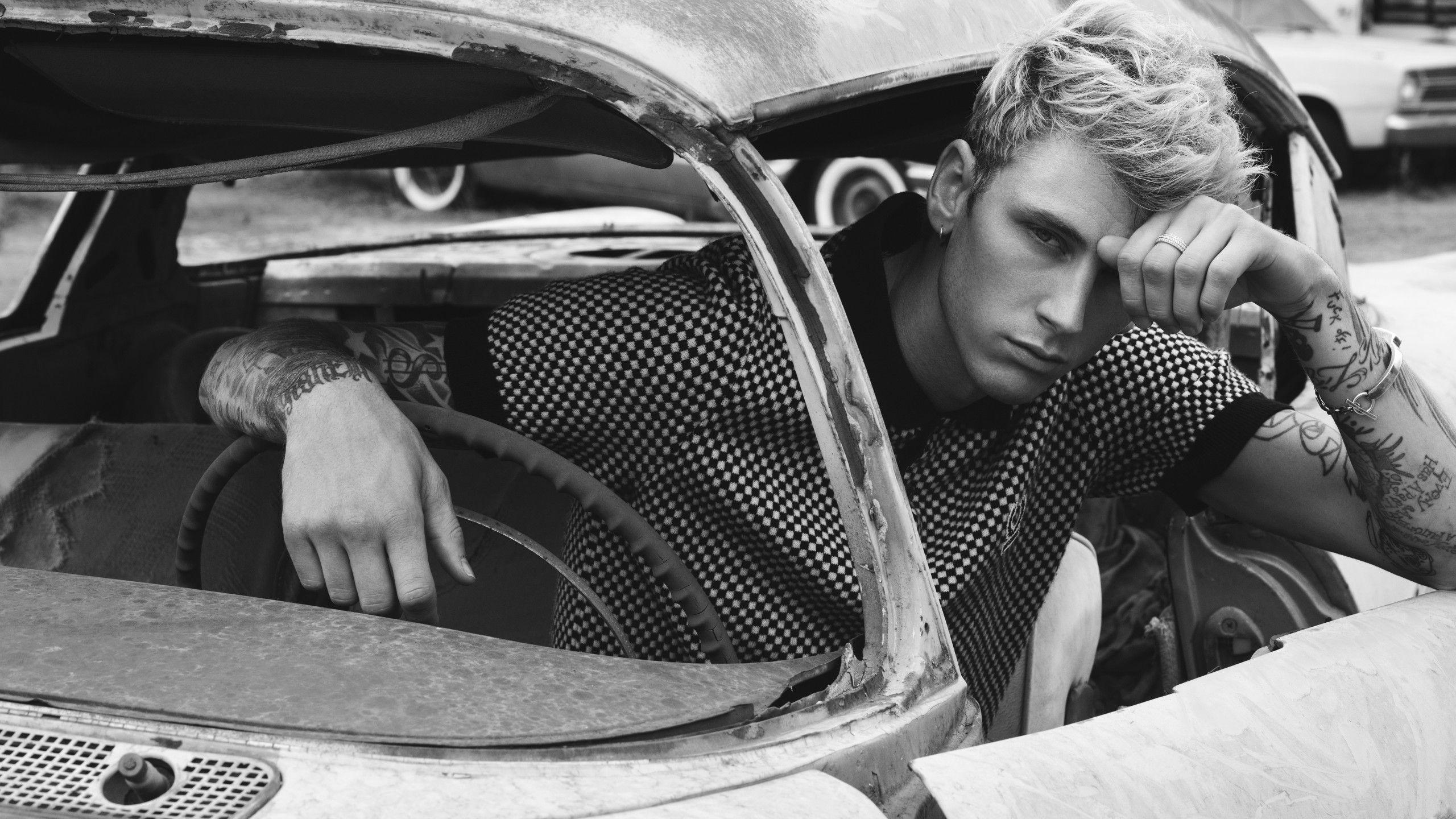Machine Gun Kelly (MGK) is not only known for his music but also for his outspoken views on various social and political issues. As a prominent figure in the music industry, his opinions often resonate with a large audience, making it essential to delve into his political beliefs. In this article, we will explore MGK's political views, the context behind them, and how they reflect his personality and artistic expression.
MGK, born Colson Baker, has made headlines for his unique blend of hip-hop and rock, but his influence extends beyond music. His perspective on political matters, including social justice, mental health, and personal freedom, has sparked discussions among fans and critics alike. This article aims to provide an in-depth analysis of MGK's political views, backed by reliable sources and statistics.
We will cover various aspects of his beliefs, including his support for specific movements and how his experiences shape his viewpoints. By the end of this article, readers will have a comprehensive understanding of MGK's political stance and its implications for his career and fan base.
Table of Contents
- Biography of Machine Gun Kelly
- Personal Data and Biodata
- Overview of MGK's Political Views
- MGK and Social Justice Movements
- Advocacy for Mental Health Awareness
- Beliefs on Personal Freedom and Expression
- Controversies Surrounding MGK's Views
- Conclusion
Biography of Machine Gun Kelly
Machine Gun Kelly, widely known as MGK, was born on April 22, 1990, in Houston, Texas. He grew up in a tumultuous environment and faced numerous challenges that shaped his identity and beliefs. His career began in the music industry, where he gained fame for his rapid-fire lyrical style and energetic performances. Over the years, he has transitioned from hip-hop to a more rock-oriented sound, reflecting his evolving artistic vision.
Personal Data and Biodata
| Full Name | Colson Baker |
|---|---|
| Date of Birth | April 22, 1990 |
| Place of Birth | Houston, Texas, USA |
| Occupation | Musician, Actor |
| Genres | Hip-hop, Rock |
Overview of MGK's Political Views
MGK's political views are often characterized by a deep sense of empathy and a commitment to social change. He has been vocal about his support for various causes, including LGBTQ+ rights, racial equality, and mental health awareness. His experiences with mental health challenges and personal struggles have influenced his dedication to advocating for these issues.
Social Media Influence
MGK frequently uses his social media platforms to express his political opinions and engage with his audience. His candid posts often reflect his thoughts on current events, encouraging fans to think critically about societal issues. This engagement has solidified his status as a voice for the younger generation, who resonate with his authenticity and passion for change.
MGK and Social Justice Movements
One of the most significant aspects of MGK's political views is his unwavering support for social justice movements. He has participated in protests and used his platform to raise awareness about systemic inequalities. His song "I Think I'm OKAY," featuring YUNGBLUD and Travis Barker, addresses themes of mental health and the struggles faced by marginalized communities.
Collaborations with Activists
MGK has collaborated with various activists and organizations focused on social justice. By aligning himself with movements such as Black Lives Matter, he amplifies the voices of those fighting for equality and justice. His commitment to these causes showcases his dedication to creating a more equitable society.
Advocacy for Mental Health Awareness
Mental health is a topic close to MGK's heart. Having faced his own battles with anxiety and depression, he openly discusses these issues in his music and interviews. His candidness encourages fans to seek help and prioritize their mental well-being.
Impact of Personal Experiences
MGK's personal experiences with mental health challenges have led him to advocate for awareness and understanding. He emphasizes the importance of breaking the stigma surrounding mental illness and encourages open conversations about mental health struggles.
Beliefs on Personal Freedom and Expression
MGK's music often reflects his belief in personal freedom and self-expression. He advocates for individuals to embrace their identities and live authentically, regardless of societal expectations. This message resonates particularly with young fans who face pressures to conform.
Artistic Expression as a Political Statement
Through his music, MGK challenges norms and encourages listeners to express themselves freely. His lyrics often address themes of rebellion and individuality, making a powerful statement about the importance of personal freedom in a conformist society.
Controversies Surrounding MGK's Views
While MGK has garnered significant support for his political views, he has also faced criticism and controversy. His outspoken nature and willingness to challenge the status quo have led to heated debates among fans and critics alike. Some argue that his approach is too aggressive, while others appreciate his authenticity.
Responses to Criticism
In response to criticism, MGK has maintained that he will continue to speak his truth and advocate for the causes he believes in. His resilience in the face of backlash demonstrates his commitment to his principles, even when faced with opposition.
Conclusion
In conclusion, Machine Gun Kelly's political views are a reflection of his personal experiences and commitment to social change. His advocacy for social justice, mental health awareness, and personal freedom resonates with many, particularly among younger audiences. By using his platform to speak out on important issues, MGK continues to inspire and provoke thought among his fans.
As we navigate the complexities of today's world, MGK's voice serves as a reminder of the power of art as a means of political expression. We encourage readers to engage in discussions around these topics and share their thoughts in the comments below. Don't forget to check out our other articles for more insights into the world of music and activism.
Thank you for reading! We invite you to return for more engaging content that explores the intersection of music, politics, and culture.


